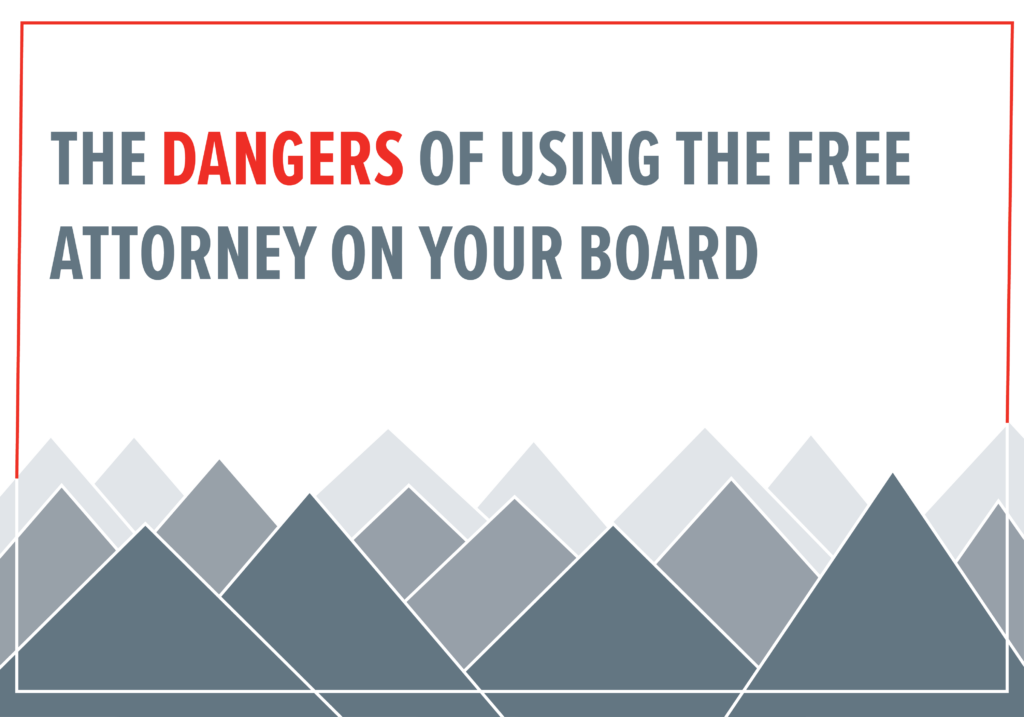
We’ve heard stories from nonprofits who’ve gotten not-so-great advice from a well-meaning attorney on their board.
But why shouldn’t the attorney on my board give legal advice for your nonprofit? Typically, board attorneys have an area of focus that is not nonprofit-related: whether it’s family law, business law, etc. And this is where the trouble lies.
What we’ve found is that asking an attorney in business law a question about nonprofits is like taking your sick child to your veterinarian. There are some commonalities the veterinarian will be able to advise on, but there are some things — maybe a specific medicine, for example — that would be better prescribed by a pediatrician who understands and works with children regularly.
Nonprofit leaders often find that the attorney on their board who usually handles divorces, injuries, business, etc. often doesn’t have the specialized knowledge needed to treat the nonprofit’s legal issues properly. A well-meaning business attorney can even give a nonprofit bad advice accidentally if he or she is unaware of the key differences in how the law treats nonprofits and for-profit entities.
For example, a business attorney is trained to interpret contracts by a certain set of standards, but many of them don’t know that there are very special rules that apply to nonprofits in circumstances related to donations. Normal contract law simply does not apply. An attorney who is trained in nonprofit law specifically is trained to know those additional laws that apply to charities and foundations.
So what’s the risk of getting advice from a Board attorney? Worst-case-scenario is that the attorney accidentally gives your nonprofit advice that isn’t accurate and it causes a problem for the organization. Normally, attorneys have malpractice insurance and nonprofits often have Directors & Officers (D&O) liability insurance. But in cases like this, we often see the malpractice insurance refusing to cover the incident because they claim the attorney was acting as a Board member, and the D&O insurance refuses to cover the incident because they claim the Board member was acting as an attorney, leaving the nonprofit open to legal and financial risk.
Don’t put your nonprofit at-risk. Reach out our experienced legal team to schedule a consultation today.
- Unrelated Business Taxable Income: What Nonprofits Need to Know for 2026 Filing - January 16, 2026
- Structuring Multi‑Site Churches and Expanding Ministries: Legal Essentials for Growth - November 26, 2025
- How to Launch a Grantmaking Foundation or Scholarship Fund (Without the Guesswork) - November 11, 2025

